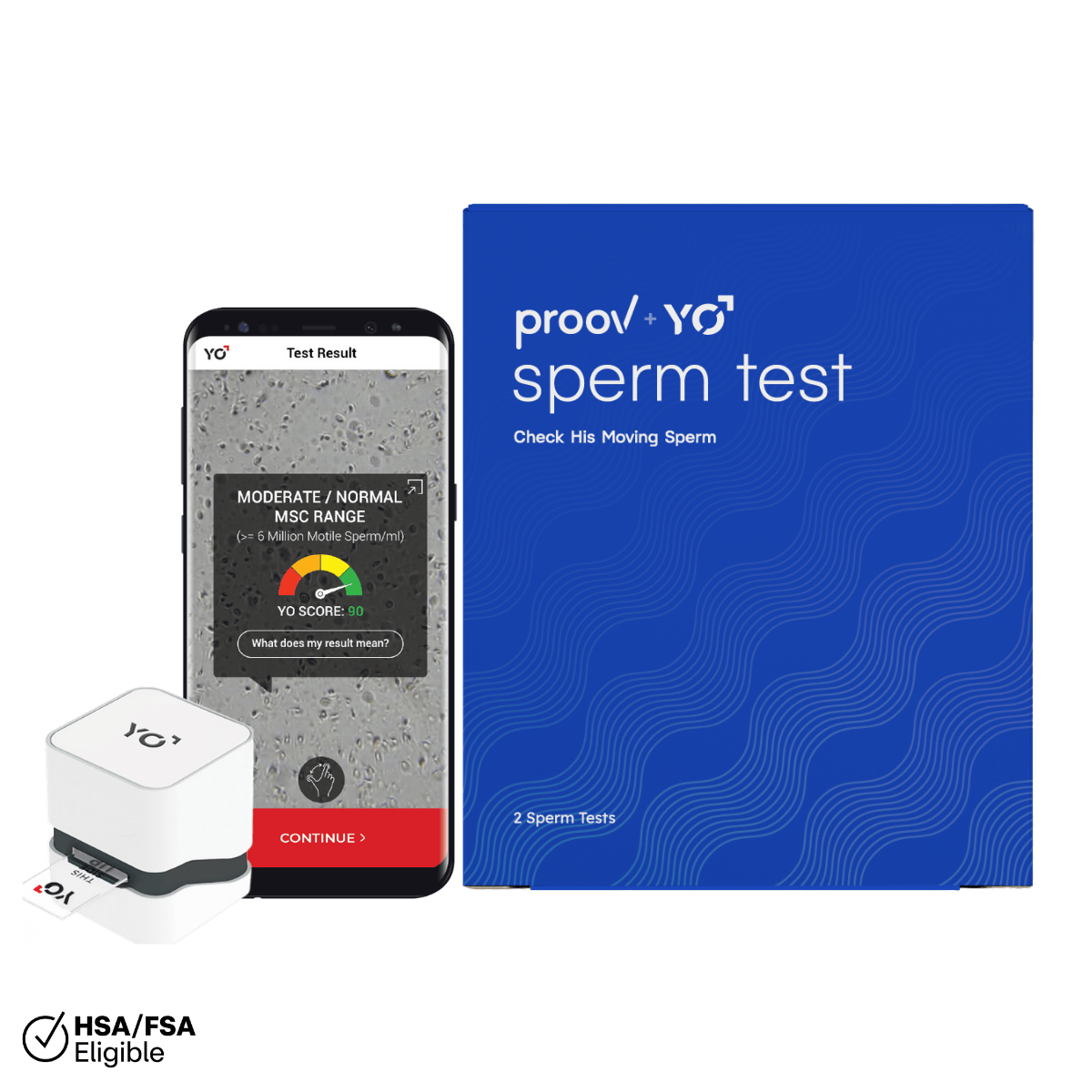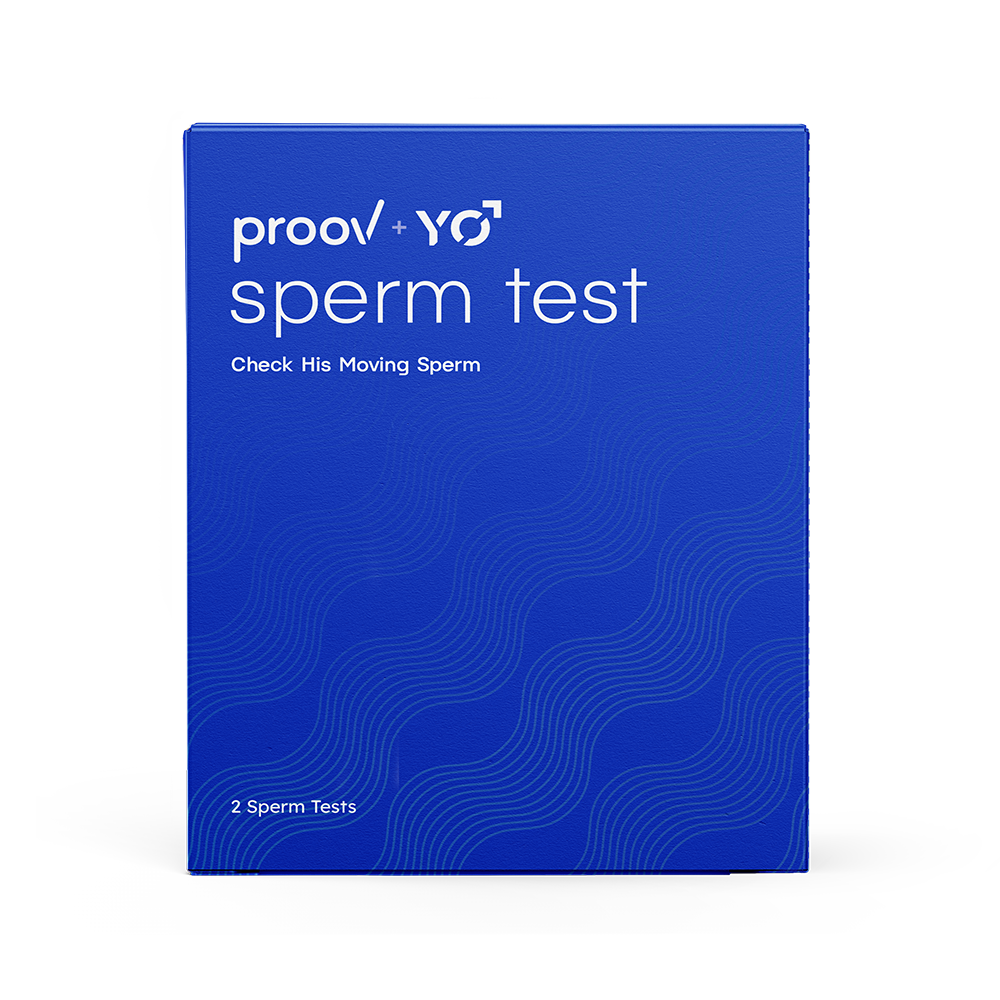Written by: Dr. Amy Beckley, PhD, Founder and Inventor of the Proov test — the first and only FDA-cleared test to confirm successful ovulation at home.
Written on 2/22/21
Ovulation tests are helpful tools when it comes to finding your fertile window when trying to conceive. In order to get the most out of your ovulation test results, you need to know when to take an ovulation test. Let’s find out!
What are ovulation tests?
Ovulation tests (also called LH tests) are strips used to detect a surge of luteinizing hormone (LH) in urine, in order to predict ovulation. Towards the end of your follicular phase as your growing follicles are preparing for ovulation, they produce estrogen. An increase in estrogen causes the pituitary gland to release a surge of LH that triggers the release of an egg — a.k.a. ovulation.
Proov LH tests are considered positive once the control and the test line are just as dark or the test line is darker, but other ovulation tests may be interpreted differently so we always recommend reading instructions!
We always have a certain amount of LH in our urine, regardless of when we test throughout our cycle. This means you may always have a very faint pink second line. As you approach ovulation, the LH amount in your urine slowly increases, and you may see the second line on your test get darker.
Why would I use an ovulation test?
Ovulation tests are used to predict ovulation in order to identify your fertile window when trying to conceive (TTC). The fertile window is critical when TTC, as these are the few days each month when it’s possible to get pregnant.
The fertile window occurs, as we’re sure you’ve guessed, around ovulation! Specifically, your fertile window includes the few days leading up to and the day of ovulation.
This is because an egg must be present in order for conception to occur. Eggs are only viable for up to 24 hours after they’re released, while sperm can live in the female reproductive tract for 3-5 days. If sperm is there waiting for the egg before ovulation, your chances of them meeting increase!
Even if you’re not trying to conceive, ovulation can be a sign of your overall health. Lack of ovulation, or anovulation, may signal underlying health issues.

Ovulation tests are used to predict ovulation in order to identify your fertile window when trying to conceive.
When do I use ovulation tests?
When to start testing with ovulation tests varies from test to test and woman to woman. As always, we recommend reading the instructions of the ovulation test brand you’ve chosen.
In a 28-day cycle, it’s often recommended that you start using ovulation tests on cycle day 10 or 11. However, most women do not have exact 28-day cycles. This means you may ovulate as early as cycle day 8 and as late as cycle day 26.
Because of this, when testing with Proov LH tests we recommend beginning to test 18 days before your next suspected period. If you did have a 28-day cycle, then you’d start testing on cycle day 10. But this method allows for flexibility depending on your unique cycle length!
However, if you do not know when you ovulate or your cycle length, you may want to start testing after the last day of your period to get to know your body and establish an ovulation pattern. Luckily, many ovulation tests are pretty inexpensive so a few extra days of testing shouldn’t break the bank.
(If you’re curious about how different brands of ovulation tests compare, check out Proov founder Amy’s Epic Ovulation Predictor Kit Experiment!)
What time of day should I take an ovulation test?
LH surges can vary in length and can last anywhere from a couple of hours to a few days. This doesn’t mean that one is better than the other in terms of fertility, but rather that someone who has a longer surge may get several positive ovulation tests before they ovulate, whereas someone who has a short surge would have to test more often so as not to accidentally miss it.
You can take ovulation tests any time of day, although LH surges usually start in early in the morning, so later in the day might be the best time of day to take ovulation test. Ideally, you’ll want to hold your urine for around 4 hours before collecting a sample to test.
Since LH surges can be short, we recommend testing with Proov LH tests once a day until you start nearing your suspected ovulation date. As you get closer to ovulation, you may want to start testing twice per day (once in the morning and once in the afternoon) to ensure you catch the surge.
Above all, the key to ovulation testing is consistency. Miss a day and you may miss your surge!

Since LH surges can be short, we recommend testing with Proov LH tests once a day until you start nearing your suspected ovulation date, when you’ll want to test twice a day.
Ovulation usually occurs 24 to 36 hours after a positive ovulation test. Hopefully you already started having intercourse so that you cover your entire fertile window. If not, now’s the time to get busy!
In order to improve your chances of conception, some experts say you should have sex at least 2-3 days before ovulation, the day of ovulation, and even the day after. However, research indicates there is only a slight variance in the probability of conception when having sex daily compared to every other day during this time period. So if you’re not feeling up to it every day, no worries.
Then what?
After predicting ovulation, finding your fertile window, and timing intercourse, you may be eager to take a pregnancy test to see if your efforts paid off! However there’s still one piece of the pregnancy puzzle missing: confirming successful ovulation!
Successful ovulation refers to an ovulatory event in which an egg was released and PdG (progesterone metabolite levels) remained elevated for long enough to allow for the best possible chance at conception. Without enough PdG for long enough after ovulation, it can be more difficult to get pregnant.
Proov PdG tests are the first and only FDA cleared PdG test kit to confirm successful ovulation at home. Testing with Proov PdG on days 7, 8, 9, and 10 after peak fertility confirms that successful ovulation did in fact occur.
Knowing when during your cycle and during the day you should take an ovulation test will give your powerful information to help you get pregnant faster!













